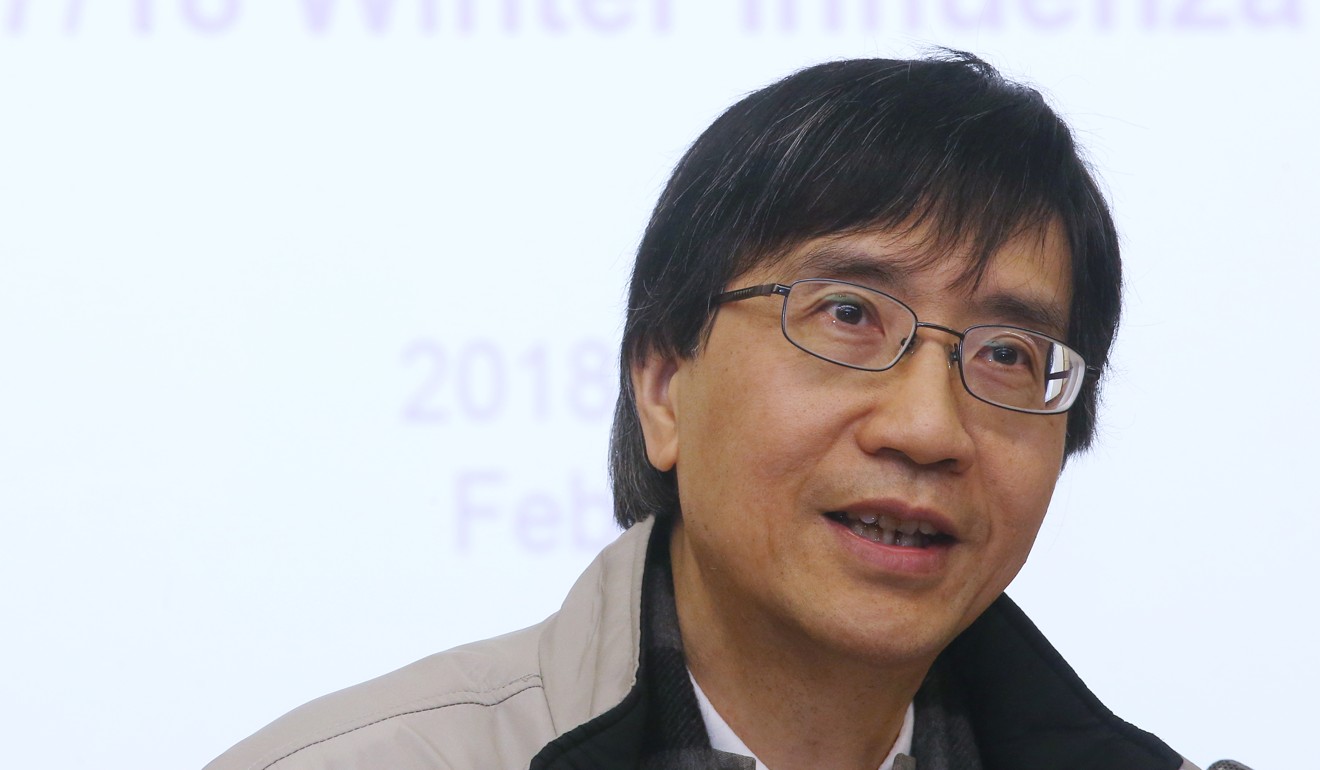
Experts denounce Canto-pop star’s claim of harmful flu jabs as ‘totally wrong’ amid deadly virus outbreak in Hong Kong
Kay Tse’s audio message on bacteria and mercury in the flu vaccine went viral as health authorities urged children and seniors to get vaccinated in a bid to control the surge in flu cases
What you need to know about this year’s unusual winter flu surge in Hong Kong
Health authorities had appealed to parents to vaccinate their children as flu season was expected to last for several more weeks.
But some clinics ran out of vaccine stocks and reportedly charged more than HK$1,900 for one injection. Children under 12 and seniors over 65 can get a HK$190 subsidy for the vaccine at participating doctors’ clinics.
On Thursday morning, Tse admitted that the message was from her, but said it was not meant for public circulation.
“The audio recording was from exchanges in a private group between me and my friends. I was also shocked that it spread to the public and was reported by the media,” Tse said in a Facebook post.
In the audio message, Tse claimed that the outbreaks were “partially caused by the vaccines”. The message explained that the vaccines were made with chicken eggs without safety checks, and patients began to spread the mutated bacteria after being infected. Flu is caused by a virus, not bacteria.
Tse also said in the recording that people should ask their doctors if the vaccines contained mercury and aluminium, adding: “The effectiveness of this year’s vaccines is very low – lower than 10 per cent, which means among 10 people who took the injection, nine still got the flu.”
Tse, who has a 10-year-old boy and a 10-month-old girl, added in her Facebook post that she recorded the message as part of a conversation with friends after they “read some materials carefully”. She said she never intended for the message to go public or influence opinion.
Still, health authorities disputed her claims.
“People will not be infected with influenza through vaccination and it is also impossible to transmit any mutated virus,” a spokesman for the Department of Health said, adding that flu vaccines used in the city did not contain mercuric compound and aluminium.
The spokesman reiterated that “vaccination is one of the most effective ways to prevent seasonal influenza and its complications, as well as reduce influenza-associated hospitalisation and death”.

Yuen said that the strains for the vaccines were developed using chicken embryo cells instead of edible eggs, and the viruses would be separated from the cells used to create them, with the cells then destroyed. Therefore, the manufacturing process would not cause any harm to those vaccinated.
As for mercury, Yuen said the metal was used for antiseptic purposes and was proved safe. The professor also clarified that the vaccines currently imported to Hong Kong contain no aluminium.
Hong Kong parents take children to school despite classes being cancelled amid flu fears
Yuen said the effectiveness rate was determined by the combination of flu strains chosen for the vaccine, and that composition depends on World Health Organisation recommendations.
“Flu always changes fast, but most times, in a combination of four strains, there would be three correctly chosen [as protection against] the coming outbreak,” Yuen said.
He added that some vaccines had achieved a protection rate of between 50 per cent and 55 per cent instead of “lower than 10 per cent” as the audio message claimed.
In its statement, the Medical Association added: “When most people in a society are vaccinated, the ability of the virus to spread would be largely reduced, benefiting both the vaccinated and the unvaccinated.”
Hong Kong’s first nasal spray flu vaccine ‘should be trialled in mainland China’
The association emphasised that the effectiveness of vaccines “has been supported by comprehensive scientific research and clinical evidence”, and urged young children, the elderly and weakened people to get the flu jab as soon as possible.
The Academy of Medicine said in a statement: “Members of the public are advised to seek medical information from credible authorities and be on guard against rumours from doubtful sources.”
The academy said the flu vaccine “has been in use worldwide for many decades and there is plenty of scientific evidence to support its safety record when properly used”.
The Society of Hospital Pharmacists and the Pharmaceutical Society also issued statements to confirm the effectiveness of vaccines.
Statistics from Hong Kong’s Centre for Health Protection under the Department of Health showed that among 123 flu-associated child deaths in the past five years, only 12 per cent of the children had received a seasonal influenza vaccine. The overall flu vaccination rate for children in Hong Kong is only 16.7 per cent. Since peak flu season began this year, 13 children have come down with severe flu and two of them died. Both were unvaccinated.

